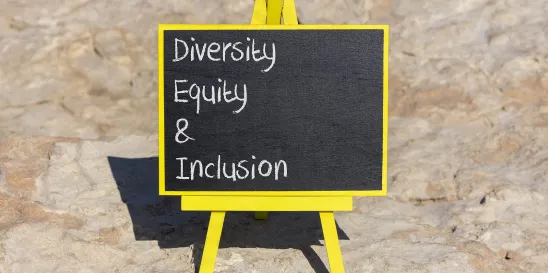On June 29, 2023, the U.S. Supreme Court issued a decision, in Students for Fair Admissions, Inc. v. President and Fellows of Harvard College and Students for Fair Admissions, Inc. v. University of North Carolina (collectively, SFFA), where it held that the use of race-based affirmative action in college and university admissions was unconstitutional. As a result, legal challenges to diversity, equity, and inclusion (DEI) have been on the rise, even outside of the context of higher education.
In addition to corporate DEI program challenges, two prevalent programs currently being challenged are the Diverse Business Enterprises (DBE) and Small Business Association’s (SBA) 8(a) program.
History of Diversity Programs
Adopted in 1983, Congress adopted a provision that required the Department of Transportation (DOT) to ensure that at least 10% of Federal financial assistance program allocations went to Disadvantaged Business Enterprises (DBE). Over the years, the provision has been amended to now include businesses owned by women and minority group members. In order to receive certification as a DBE and be eligible to participate in the program, the business entity must be owned and controlled by a socially and economically disadvantaged individual(s).
In addition to the DBE program, the Small Business Association Development Act of 1958 created the 8(a) program. The SBA 8(a) program is a business development program that is designed to assist socially and disadvantaged small business.
Both programs, until now, used a rebuttable presumption that gender, racial, and ethnic minorities are “socially disadvantaged.” The use of this rebuttable presumption has recently been challenged and has sparked changes to how the evaluation of program eligibility is conducted.
Wave of Challenges Post-SFFA
The Court’s decision in Students for Fair Admissions had impacts outside of the college admissions process. The Small Business Association’s use of a rebuttable presumption was deemed unconstitutional in Ultima Servs. Corp. v. U.S. Department of Agriculture. (Click here to learn more about this decision) In this Eastern District of Tennessee case, the holding of SFFA was used as a basis for deeming the use of the presumption unconstitutional.
Another example was a case coming out of the Middle District of Florida, Bruckner v. Biden, which challenged a government set-aside in the Infrastructure Investment and Jobs Act that earmarked programs that allocated 10% of transportation funds to socially and economically disadvantaged businesses. This case was dismissed for lack of standing because the plaintiff was not able to show that they suffered harm. However, the case was dismissed without prejudice and the Plaintiff is not barred from bringing this lawsuit again. In dismissing this case, the court largely based its decision on the fact that not all projects funded under the Act will be awarded in whole or in part based on race or sex-based criteria.
At the moment, there is pending litigation in the Eastern District of Kentucky that challenging the DOT’s DBE program. In that case, Mid-America Milling Company, LLC, et. al. v. U.S. Department of Transportation, et. al., the Plaintiffs cite to the SFFA decision and argue that the DOT may only resort to racial preferences if they can “point to identified instances of past discrimination that violated the Constitution or statute.”
Takeaways
• Although there has been a wave of challenges, these programs continue to exist.
• Ultimately, no court has ruled these programs unconstitutional.
• As these challenges have continued to grow, some agencies have issued guidelines for participants.
• Some guidelines now require individuals to establish social disadvantaged status by completing a social disadvantaged narrative.



 />i
/>i

